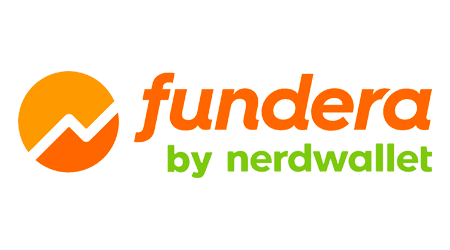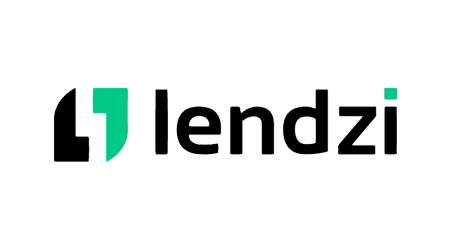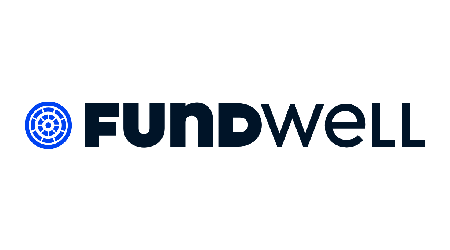If you’re seeking a $5,000 business loan, you may have a better chance of getting loan approval than you would for a larger amount. Smaller loans are less risky for lenders, so requirements to apply may be less stringent than for larger loans.
Where to get a $5,000 business loan
You can find $5,000 business loans at banks, credit unions and online lenders, in addition to other funding sources. Some business loan lenders may not offer loan amounts of this size, but there are other options to secure a $5,000 loan.
For example, if you run a business in a low-income community, you may be able to secure funding through Community Development Financial Institutions (CDFIs). CDFIs include both public and private investors that, among other resources, provide affordable financing for businesses in need.
Another solution to consider is SBA microloans, which are backed by the Small Business Administration (SBA). SBA microloans range in size from $500 to $50,000 and are offered through intermediary community-based lenders.
A $5,000 personal loan is another option, which may be easier to get than some types of business financing. With a personal loan, you can sidestep common business loan requirements and instead rely on personal credit and income criteria. Personal loans can be found online and at banks and credit unions.
Compare $5,000 business loans
Use this table to evaluate lenders that offer $5,000 business loans by comparing interest rates and loan requirements.
Compare other products
We currently don't have that product, but here are others to consider:
How we picked theseWhat is the Finder Score?
The Finder Score crunches 12+ types of business loans across 35+ lenders. It takes into account the product's interest rate, fees and features, as well as the type of loan eg investor, variable, fixed rate - this gives you a simple score out of 10.
To provide a Score, we compare like-for-like loans. So if you're comparing the best business loans for startups loans, you can see how each business loan stacks up against other business loans with the same borrower type, rate type and repayment type.
How to get a $5,000 business loan
The application process varies by lender, but you can follow these steps to get started.
- Compare lenders. Start by researching interest rates, loan terms and requirements of lenders that offer $5,000 business loans. An online marketplace may be a good place to start.
- Get prequalified. Once you’ve identified a few potential lenders, ask to get prequalified to get an idea of the rate and terms you might qualify for. This is also a good time to ask for more information about requirements, fees and other details.
- Gather your documents. Business lenders want to look at documentation such as bank and financial statements, revenues, tax returns, a business plan and a loan proposal. Get a list of exactly what you need to apply to your lender.
- Apply for the loan. Fill out your loan application, provide the necessary documents and wait for a reply. Online lenders may respond within a few days, but some loans — like SBA loans — can take longer.
How to qualify
Lender requirements to qualify for a $5K business loan vary, but here are some common criteria you’ll likely need to meet.
- Credit scores. If your business hasn’t established good credit, lenders may scrutinize both your personal and business credit scores.
- Time in business. To qualify for some business loans, lenders may require that you’ve been in business for at least two years. However, for a relatively small $5,000 loan, you may qualify after only six months in business.
- Annual revenues. Depending on the lender, you’ll usually have to bring in a minimum annual revenue to qualify for the loan. However, a loan of this size may have less stringent requirements that a higher loan amount.
- Loan proposal. Lenders want a detailed proposal on how you plan to use the loan proceeds. You may also need to provide your overall business proposal as well.
- Collateral. Some business loans may require collateral to secure the loan, such as equipment, real estate or inventory. You may also need to provide a personal guarantee.
- Financial and business documents. Business loans require a lot more paperwork than personal loans, so be ready to provide tax returns, financial statements, revenues, bank statements and other documents.
How much does a $5,000 loan cost?
The total cost of a $5,000 business loan mostly depends on the interest rate you qualify for and the length of the loan term. Some lenders may also attach fees to the loan, such as an origination or processing fee, which could be up to 5% of the loan.
Shorter loan terms typically have lower interest rates — saving you money throughout the loan — but your monthly payment will be higher. It’s important to figure out your budget to know how much you can afford to pay each month. From there, you can decide which loan term will fit your budget.
Use our business loan calculator to find out what your monthly loan payment could be based on different loan terms and interest rates.
$5,000 loan repayment calculator
See how much you'll pay|
Your loan
|
|---|
| Loan amount |
|
$
|
| Loan terms (in years) |
|
|
| Interest rate |
|
%
|
Fill out the form and click on “Calculate” to see your estimated monthly payment.
or
Compare business loans nowBased on your loan terms
| Principal | $ |
|---|---|
| Interest | $ |
| Total Cost | $ |
5 Types of $5,000 business loans
Here are some types of business loans to consider, including lines of credit, term loans and equipment loans.
1. Term loans
One of the most common types of business loans is a term loan. You may find short-term business loans and long-term business loans in your search. A term loan, also known as an installment loan, is when you borrow a lump sum of money and repay it in equal monthly installments for a specific loan term. Monthly payments include both principal and interest charges.
Consider if you…
- Want a lump sum of money
- Have strong credit and revenues
- Have a specific expense in mind
Consider other options if…
- You don’t know how much you need
- Your credit and revenues don’t qualify
- You have ongoing financing needs
2. Business lines of credit
A business line of credit is similar to a credit card in that you’re given access to a revolving line of credit that you can draw on as needed up to your borrowing limit. Business lines of credit can be useful for ongoing expenses, like working capital, or if you have a project and aren’t sure how much it will cost.
Consider if you…
- Have ongoing financing needs
- Aren’t sure how much you need
- Need an emergency fund to draw on
Consider other options if…
- You want a lump sum
- You have a specific expense in mind
3. SBA Microloans
The SBA microloan program offers loans for small businesses between $500 and $50,000 through nonprofit community-based lenders. This SBA loan program is meant to provide financing to underserved businesses and businesses in low-income communities.
Each lender sets its own credit and loan requirements, and collateral and a personal guarantee are often required. The average loan size is about $13,000, which puts a $5,000 loan within reach for eligible borrowers, but the loan process can take a long time.
Consider if you…
- Have trouble getting other financing
- Run a business in a low-income area
- Are a woman or minority member
Consider other options if…
- You need money right away
- You’ve never tried to get a loan
- You qualify for other loan options
4. Equipment loans
Equipment loans are term loans, much like a car loan, where the equipment (or vehicle, for example), is used as collateral. Because equipment loans are secured by collateral, you might get better interest rates than other lending options. However, many lenders may require a downpayment, which could be 20% of the purchase price.
Consider if you…
- Have a specific equipment need
- Have money for a downpayment
- Want a better interest rate
Consider other options if…
- You don’t have the downpayment
- You don’t need any equipment
- You prefer an unsecured loan
5. Merchant cash advances
A merchant cash advance (MCA) is a type of short-term financing in which a lender fronts a business with a lump sum in exchange for a percentage of future sales. Companies pay the money back through incoming debit and credit card sales and may need to agree to have payments deducted automatically from their bank account. Payments may be weekly or even daily, and interest rates are typically high.
Consider if you…
- Have high sales volume
- Have revenue mostly by credit cards
- Have a short-term need for fast cash
Consider other options if…
- You don’t have a lot of credit sales
- You don’t need fast (expensive) cash
- You can qualify for other loans
Bottom line
There are plenty of business loans for borrowers seeking a $5K loan to grow their business or solve cash flow issues. Options include term loans, business lines of credit and SBA loans, to name a few. Whatever your needs, be sure to research all business loan solutions and compare multiple lenders to find the best deal that meets your needs.
Frequently asked questions
Can I get a $5,000 loan to start a business?
Startup loans can be more difficult to qualify for than those geared toward established businesses because they carry a higher risk to lenders. However, $5,000 startup loan options are available from online lenders, personal loan providers and others.
Can I get a $5K business loan with bad credit?
If you have bad credit, getting a $5K business loan can be more challenging to qualify for, but some online lenders and other loan sources will work with lower credit scores. But you must meet other requirements and possibly offer collateral or a personal guarantee. In addition, you may pay higher interest rates than borrowers with better credit.
Can I get a $5,000 SBA 7(a) loan?
Technically, the SBA 7(a) loan program doesn’t have a minimum loan amount, but loans under this program typically range from $50,000 to $5 million. If you’re looking for a $5,000 business loan, you’ll have better luck with the SBA microloan program.
Other business loan amounts:
Sources
Ask a question
More guides on Finder
-
8 Best Commercial Truck Loans (2026)
Best financing options for trucking companies to cover licensing, new trucks, insurance, vehicle maintenance and more.
-
How to Get a Million Dollar Business Loan in 2026
We look at eligibility requirements, potential costs, SBA options and more.
-
$50K No-Doc Business Loans: Fast Funding, Apply Today (2026)
Compare $50,000 no-doc business loans for an expedited lending process.
-
How to Get a $400,000 Business Loan in 2026
Compare different lenders to secure a $400,000 business loan with favorable terms.
-
Compare $40,000 business loans (2026)
Find a $40,000 business loan for your business and calculate the cost before you apply.
-
How to Get a $10 Million Business Loan in 2026
Buy real estate, another business or expand your enterprise.
-
How to Get a $3 Million Business Loan in 2026
You’ll have an easier time qualifying if you have strong credit and high revenue.
-
How to Get a $5 Million Business Loan in 2026
Find financing to grow your business — or even buy another.
-
Compare $10,000 Business Loans in 2026
Stay away from big banks for a loan of this size.




